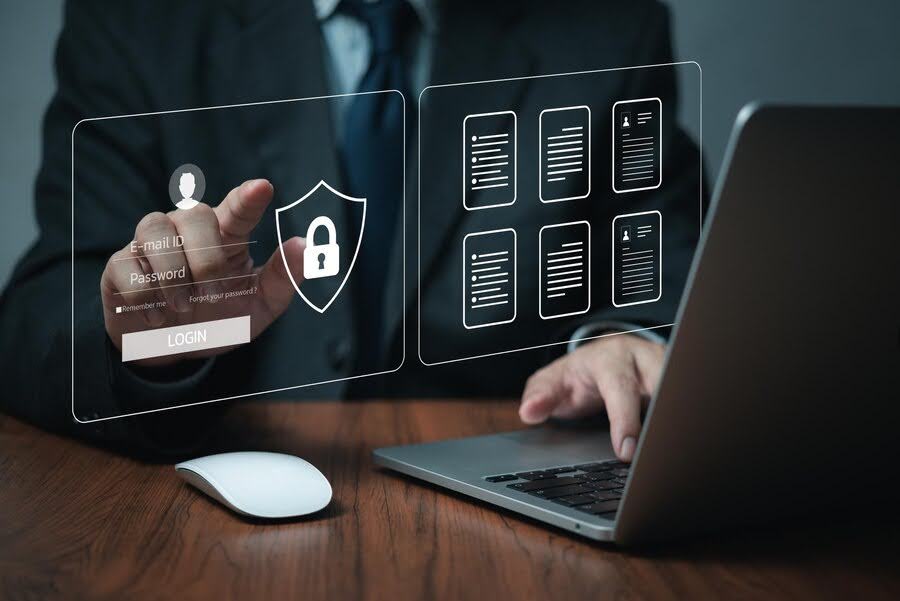Accounting data is the backbone of financial integrity in any organization. Balance sheets, revenue statements, tax records—these documents dictate a company’s fiscal health. Yet, in an era where cyber threats evolve faster than compliance regulations, the security of this data remains under constant threat. Endpoint security plays a pivotal role in ensuring that financial records remain untouched by unauthorized entities, shielding them from malware, phishing attempts, and insider threats. But how exactly does endpoint security fortify accounting data against these modern dangers?
Understanding the Risks to Accounting Data
The threat landscape is vast. Ransomware can encrypt sensitive files, rendering financial data inaccessible until a hefty ransom is paid. Keyloggers might record every entry a finance executive types, compromising passwords to accounting systems. Phishing scams? They lure employees into unknowingly handing over credentials, granting attackers unrestricted access to confidential financial statements.
A 2023 report by IBM found that the average cost of a data breach reached $4.45 million, with financial institutions being among the most targeted sectors. Accounting departments, in particular, are prime targets due to the sensitive nature of the data they handle—tax details, payroll, investment records, and client transactions.
The risks extend beyond external attacks. Insider threats account for nearly 34% of all data breaches, according to the 2023 Verizon Data Breach Investigations Report. A disgruntled employee, a careless accountant who clicks on a malicious link, or even an unauthorized user accessing an unprotected device—each scenario highlights the fragility of financial data security.
What is Endpoint Security?
Endpoint security refers to the protection of all devices (laptops, desktops, mobile phones, and servers) connected to a company’s network. In essence, it acts as the first line of defense, ensuring that every access point is secure against cyber threats. Unlike traditional antivirus programs, modern endpoint security solutions employ AI-driven threat detection, behavioral analytics, and real-time monitoring to prevent breaches before they occur.
Think of endpoint security as a digital bouncer at the doors of an exclusive club. No valid credentials? No entry. Suspicious behavior? Immediate expulsion. Continuous surveillance ensures that only authorized users can interact with sensitive accounting files.
How Endpoint Security Protects Accounting Data
The key to successful endpoint protection is a comprehensive approach. But when it comes to personal devices, smartphones or external connections, system administrators usually rely on employees knowing what they are doing outside the office. Instead, you can use VPN apps to ensure data safety on Android. Definitely, data safety with VeePN immediately goes up 10 levels. All traffic is transmitted only in encrypted form, VPN hides its route from the end server, as well as from those who can monitor your network (ISP or Wi-Fi network administrator).
1. Multi-Layered Authentication and Access Control
One of the most effective ways to secure accounting data is by limiting who can access it. Multi-factor authentication (MFA), biometric logins, and role-based access controls ensure that only authorized personnel can view or modify financial records. 90% of cyberattacks are due to human error, according to a study by Stanford University, so restricting access minimizes potential exposure.
2. Real-Time Threat Detection and Response
Traditional security solutions react after an attack occurs. Modern endpoint security, however, employs real-time analytics to detect anomalies before damage is done. If an unauthorized user attempts to download bulk accounting data or a malicious script tries to execute within a finance application, automated alerts and response mechanisms can isolate the threat instantly.
3. Data Encryption and Secure Storage
Accounting data must not only be protected from unauthorized access but also encrypted at all stages—in transit and at rest. The simplest encryption method is to activate a VPN extension for your browser. There are also more complex endpoint security solutions to encrypt financial records, ensuring that even if a device is stolen or hacked, the data remains unreadable without the proper decryption key.
4. AI-Powered Behavioral Analysis
Cybercriminals are getting smarter. Fortunately, so is endpoint security. AI-powered security tools can analyze normal user behavior and flag deviations. If an accountant suddenly starts downloading large volumes of data at midnight—something they’ve never done before—the system raises an alarm and automatically revokes access.
5. Patch Management and Software Updates
Outdated software is an open door for cybercriminals. Many financial breaches occur due to unpatched vulnerabilities. Endpoint security solutions ensure that all devices receive timely security patches, closing gaps before hackers can exploit them.
The Cost of Neglecting Endpoint Security in Accounting
Ignoring endpoint security is a financial risk. Beyond the direct costs of a breach—regulatory fines, legal fees, and ransomware payments—businesses also suffer from reputational damage. A survey by KPMG found that 53% of customers would stop doing business with a company that failed to protect their data.
Even small accounting firms aren’t safe. A 2022 Cybersecurity Ventures report revealed that 43% of cyberattacks target small businesses, many of which lack proper security defenses. The financial sector, including accounting firms, remains one of the most lucrative targets for hackers.
Future Trends in Endpoint Security for Accounting
The battle between cybersecurity and cyber threats is a continuous arms race. The future of endpoint security in accounting will likely include:
- Zero Trust Architecture (ZTA): No device or user is automatically trusted. Continuous verification is required for every interaction.
- Blockchain for Data Integrity: Using decentralized ledgers to ensure financial records remain tamper-proof.
- Quantum Encryption: Unbreakable encryption methods that surpass traditional cryptographic techniques.
Conclusion
Endpoint security is not just an IT concern—it’s a business imperative. As accounting data continues to be a high-value target for cybercriminals, organizations must prioritize robust endpoint security measures. From multi-factor authentication to AI-driven threat detection, every layer of protection strengthens financial data integrity. In a world where one cyberattack can lead to millions in losses, safeguarding accounting data with endpoint security isn’t an option—it’s a necessity.
Would you leave your company’s bank vault open overnight? If not, then why leave your accounting data unprotected?



Leave A Comment
You must be logged in to post a comment.